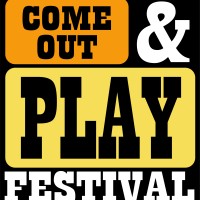
Four years ago, Jane McGonigal released Reality is Broken to make a case for the positive benefits of games, both as an anti-escapist outlet for personal growth and as a template for tackling serious societal challenges. The focus of Reality is Broken was on dissecting the core principles of game design, providing a series of case studies on how those principles were used to tackle big problems, and creating a community of game developers interested in making “gameful experiences.” Reality is Broken is a book of big solutions for big problems. It’s turning to games to encourage entrepreneurship in Africa, or to reinvent education to be more fun and rewarding for students. The book’s spiritual successor, SuperBetter, tells a much more personal story, of making the world better one person at a time.
Jane McGonigal, Concussion Slayer
Halfway through writing Reality is Broken, McGonigal slammed her head into a cabinet door and suffered a serious concussion that took away many of the things she loved most. To help recover McGonigal assumed a secret identity as Jane the Concussion Slayer. Over the following weeks, she recruited her friends to serve as Buffy the Vampire Slayer-themed allies as she identified the “bad guys” (triggers that made her feel worse) and “power-ups” (concrete actions she could take to feel better) to get better. Longer-term quests helped her along the road to recovery. Jane the Concussion Slayer was a highly personal and transformative experience for McGonigal.
During her research, McGonigal learned that while traumatic events can lead to post traumatic stress disorder, they can also serve as opportunities for people to reevaluate their priorities and experience post-traumatic growth, coming out of their crisis better than they were before. Further research indicated it’s even possible to voluntarily embrace a difficult challenge to experience similar benefits without the trauma, as post-ecstatic growth. SuperBetter is McGonigal’s attempt to tell their own stories of growth, whether in response to personal trauma or as a voluntary route to betterment.
The release of Jane McGonigal’s newest book SuperBetter is not the game’s global debut. McGonigal released the basic framework for it six years ago on her blog, She went on to recount the story in Reality is Broken, before creating a free online portal to make it easier to guide people through the process. The game has been around for a while. The book provides a rationale for playing, an overview of the studies that influenced its design, and a roadmap to start playing the game.

 In 2008, Jane McGonigal
In 2008, Jane McGonigal 
 During her
During her